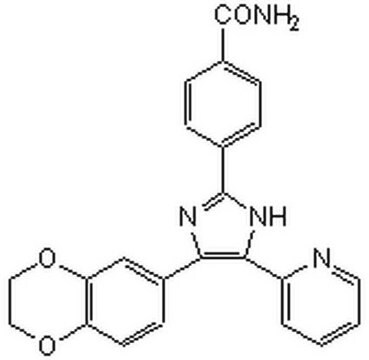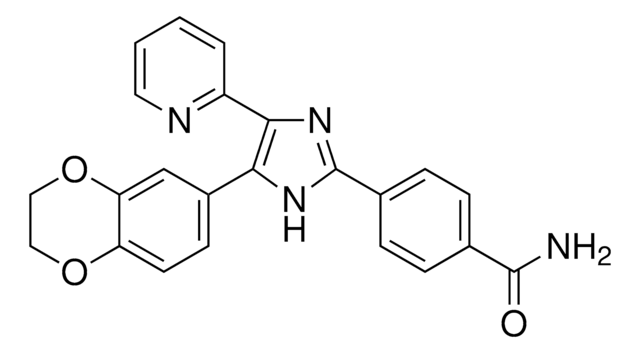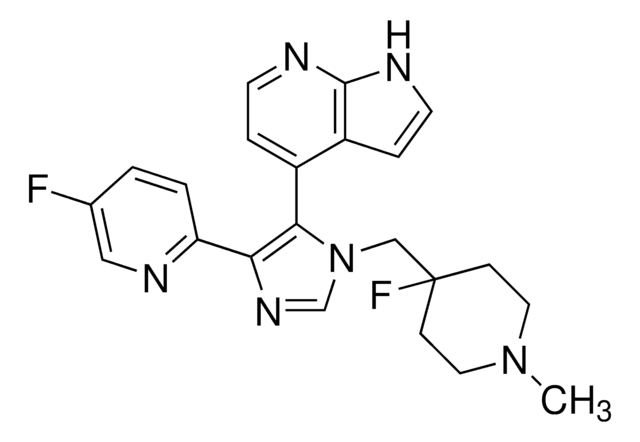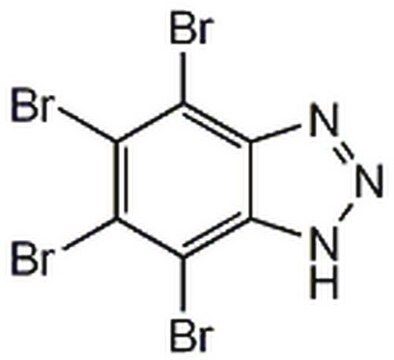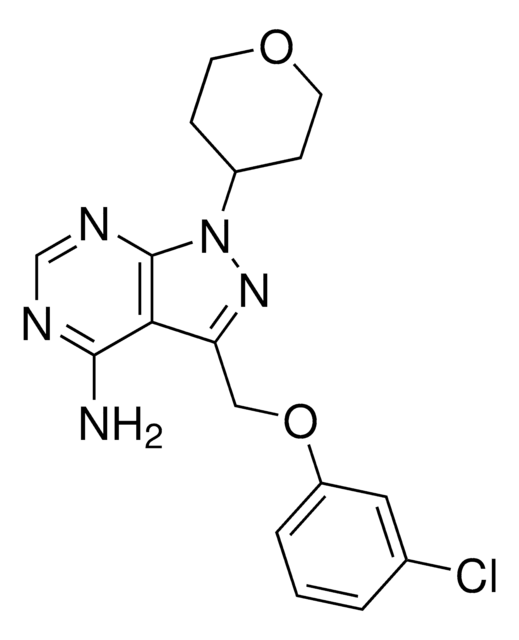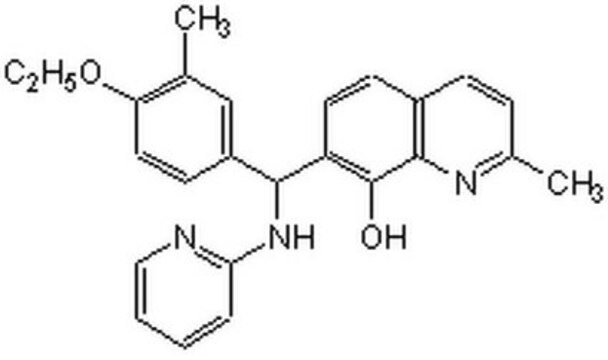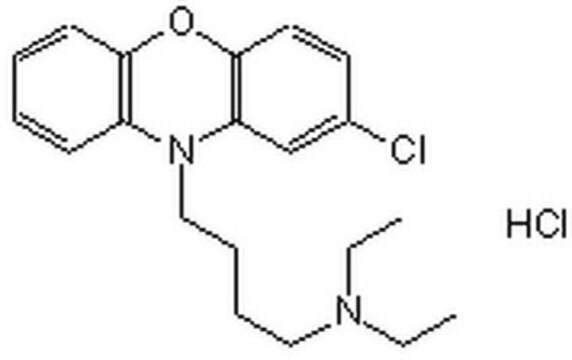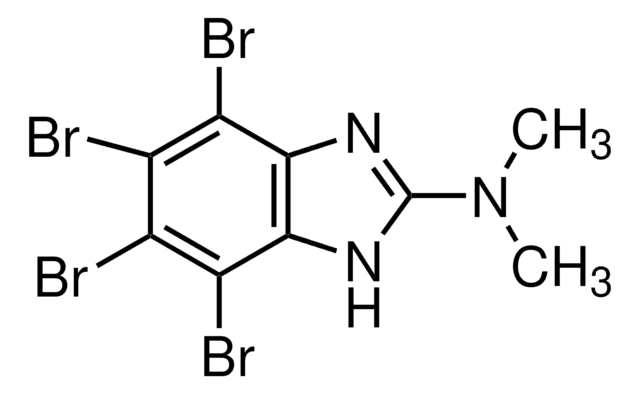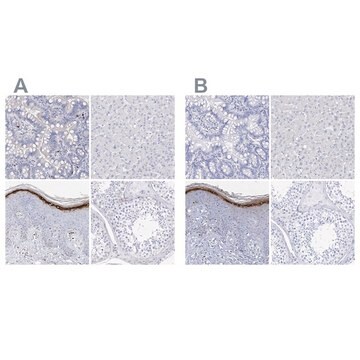218696
Casein Kinase I Inhibitor, D4476
The Casein Kinase I Inhibitor, D4476, also referenced under CAS 301836-43-1, controls the biological activity of Casein Kinase I. This small molecule/inhibitor is primarily used for Phosphorylation & Dephosphorylation applications.
Synonym(s):
Casein Kinase I Inhibitor, D4476, CK1 Inhibitor, 4-(4-(2,3-Dihydrobenzo[1,4]dioxin-6-yl)-5-pyridin-2-yl-1H-imidazol-2-yl)benzamide
About This Item
Recommended Products
Quality Level
Assay
≥95% (HPLC)
form
crystalline solid
manufacturer/tradename
Calbiochem®
storage condition
OK to freeze
protect from light
solubility
DMSO: 40 mg/mL
shipped in
ambient
storage temp.
2-8°C
SMILES string
[nH]1c(nc(c1c5ncccc5)c3cc4c(cc3)OCCO4)c2ccc(cc2)C(=O)N
InChI
1S/C23H18N4O3/c24-22(28)14-4-6-15(7-5-14)23-26-20(21(27-23)17-3-1-2-10-25-17)16-8-9-18-19(13-16)30-12-11-29-18/h1-10,13H,11-12H2,(H2,24,28)(H,26,27)
InChI key
DPDZHVCKYBCJHW-UHFFFAOYSA-N
General description
Biochem/physiol Actions
Packaging
Warning
Legal Information
Storage Class Code
11 - Combustible Solids
WGK
WGK 3
Flash Point(F)
Not applicable
Flash Point(C)
Not applicable
Regulatory Listings
Regulatory Listings are mainly provided for chemical products. Only limited information can be provided here for non-chemical products. No entry means none of the components are listed. It is the user’s obligation to ensure the safe and legal use of the product.
JAN Code
218696-30MG:
218696-1MG:
Certificates of Analysis (COA)
Search for Certificates of Analysis (COA) by entering the products Lot/Batch Number. Lot and Batch Numbers can be found on a product’s label following the words ‘Lot’ or ‘Batch’.
Already Own This Product?
Find documentation for the products that you have recently purchased in the Document Library.
Customers Also Viewed
Our team of scientists has experience in all areas of research including Life Science, Material Science, Chemical Synthesis, Chromatography, Analytical and many others.
Contact Technical Service